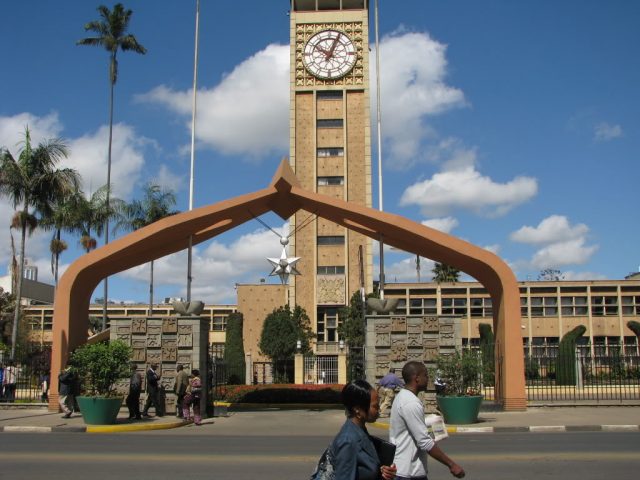As Kenyans keep tabs with events of how Members of Parliament (MP) passed the Security Laws (Amendments) Bill, they need to know that they should not wait until 2017 or when the next General Elections are held to exercise their rights to choose their representatives.
Guided by the failure of leadership in successive governments, the drafters of the Constitution saw it wise to have a clause in the Constitution that would allow recalling an MP. Article 104 states that elected leaders, Senators and MPs can be recalled. Moreover, electorates can also recall a County Assembly Member (MCA).
The process of recalling is the same for all and what differs is the threshold that needs to be reached due to population dynamics in the respective leadership areas. For instance, it will take less people to sign signatures for removing an MCA and most for removing a Senator.
The Elections Act (2011) provides for the process of removing Parliamentarians. In the Constitution, Parliament refers to both Senate and National Assembly. Part IV of the Elections Act, sections 45 to 48 gives guidelines for recalling Parliamentarians.
Parliamentarians can be recalled due to these grounds;
(a) is found, after due process of the law, to have violated the provisions of Chapter Six of the Constitution;
(b) is found, after due process of the law, to have mismanaged public resources;
(c) is convicted of an offence under the Elections Act.
Surmounting the legal minefield required to recall these leaders is what is tedious and could probably come to naught.
The process can only be initiated upon a judgment or finding by the High Court confirming the grounds specified above.
This process can only be initiated twenty four months after the election of the Member of Parliament and not later than twelve months immediately preceding the next general election. This means there is only a two year window to recall these elected leaders.
There is a restriction that a recall petition cannot be filed against a Member of Parliament more than once during the term of that Member in Parliament. Also, a person who lost or was a competitor in the preceding election cannot initiate this process directly or indirectly.
This recall should be filed with the Independent Electoral and Boundaries Commission (IEBC) in writing and signed by a petitioner who;
(i) is a voter in the constituency or county in respect of which the recall is sought; and
(ii) was registered to vote in the election in respect of which the recall is sought;
The petition must be accompanied by an order of the High Court issued following the determination of the grounds for recall. Remember, the elected representative can appeal the ruling and this can take time.
The petitioner in writing to the IEBC needs to specify the grounds for the recall and attach;
(b) a list of such number of names of voters in the constituency or county which shall represent at least thirty percent of the registered voters; and
(c) be accompanied by the fee prescribed for an election petition.
When filing these petitions, one needs to deposit some money as security. These costs defer but are refundable at the end of the case. They are largely to ensure there is no abuse albeit they can impede someone with a genuine case but lacks of the costs to file a case. For an MCA, it costs sh100, 000, while that for MP, Senator and Governor is sh250, 000. That for a President is sh1M, but only filed at the Supreme Court albeit you cannot recall a President. There is however filing costs, which is an administrative cost is sh10, 000 non refundable.
Governors and Presidents cannot be recalled but there are other measures, like impeachment where they violate the Constitution.
The list of names must contain the names, address, voter card number, national identity card or passport number and signature of the voters supporting the petition and shall contain names of at least fifteen percent of the voters in more than half of the wards in the county or the constituency, as appropriate.
It is critical that the voters supporting a petition represent the diversity of the people in the county or the constituency as the case may be. These names need to be collected and submitted to the Commission within a period of thirty days after filing the petition. Thereafter the Commission shall verify the list of names within a period of thirty days of receipt of that list.
If the Commission is satisfied that the requirements have been met, it shall within fifteen days after the verification, issue a notice of the recall to the Speaker of the relevant House. The Commission shall then conduct a recall election within the relevant constituency or county within ninety days of the publication of the question.
The IEBC will then frame the question to be determined at the recall election. A question shall be framed in such a manner as to require the answer “yes†or the answer “noâ€. IEBC will assign a symbol for each answer to the recall question. This voting shall be by secret ballot.
A recall election shall be decided by a simple majority of the voters voting in the recall election. Where a recall election results in the removal of a Member of Parliament, the Commission shall conduct a by-election in the affected constituency or county.
However, the law does not restrict or forbid the Member of Parliament who has been recalled from running in the by-election conducted.
Finally, a recall election shall be valid if the number of voters who concur in the recall election is at least fifty percent of the total number of registered voters in the affected county or constituency.


